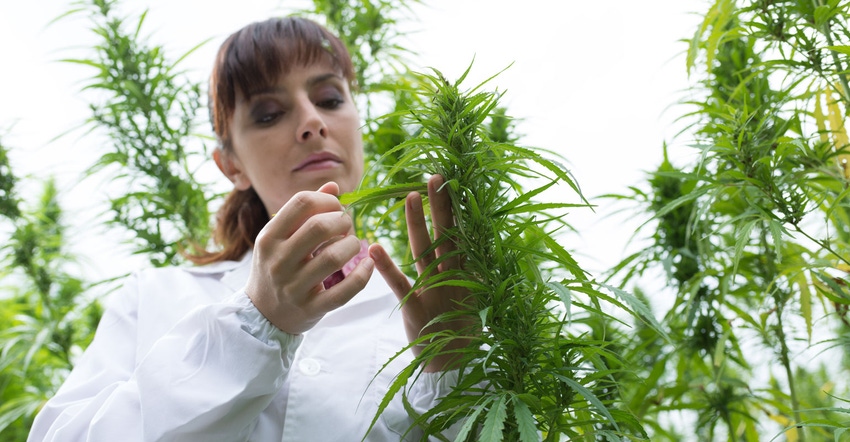
The new farm bill includes a provision legalizing the growing of industrial hemp nationwide, and there are a lot of people who see this as a panacea, opening up a whole new industry that will skyrocket agriculture.
I think it might be a little early to celebrate.
There are a lot of warning signs out there that make it apparent that we should slow down a bit on the enthusiasm.
Senate Majority Leader Mitch McConnell thinks that hemp could replace tobacco as a mainstay of Kentucky agriculture. I can see reasons to be encouraged, but a lot of things need to be taken into consideration about how fast a hemp industry can grow.
Let’s start with the most profitable hemp product — CBD oil. I’m checking in as a fan. I am a CBD user and it has taken away so much knee pain that I am no longer thinking I’m inevitably facing replacement surgery. It is awesome stuff.
But I also see problems with growth in the industry. There is a need for regulation and labeling; a way to assure that consumers are getting what they pay for when they buy a bottle of tincture, oil, bath balms or topical creams. These assurances will come at a price.
I read a report recently that suggested that a medicinal CBD industry that is dependable, with consistent quality, will require hemp to be grown under “pharmaceutical” conditions. This likely means controlled, sterile greenhouses with provable measures of content. That’s a far cry from 200 acres in an open field that can be processed easily or cheaply.
Yes, there are many, many other uses of hemp. That includes the close-to-original use of making rope. It’s useful for a bunch of fiber applications. The word is it may also be usable for grazing or hay. None of those are high-dollar products.
The real question is whether or not this product can be moved into the commodity chain, or even the specialty chain, in a way that is profitable for farmers.
If farmers in big numbers provide the raw product of CBD oil, its price will drop dramatically. That would be great for consumers who could see their 30-mililiter bottle (about 30 doses) drop dramatically from the $75 it now costs. But how great would that be for producers? It’s likely that the added costs of certifying content levels and purity might not bring the price down that much for consumers, but it will be producers who are on the losing end.
Suppose you plant industrial hemp in the spring and are looking for a market in the fall. Maybe you better look for that market first and not plant until you find one.
I’m optimistic that this environmentally friendly crop with a wide list of potential applications and product will be a boon to farmers looking for more diversification in their operations, but I’m also aware of how difficult it can bring a new product or products to full market potential.
Consider that the ethanol business has been around for 40 years and is still fighting for market share. There’s room for optimism, but also room for caution.
About the Author(s)
You May Also Like






